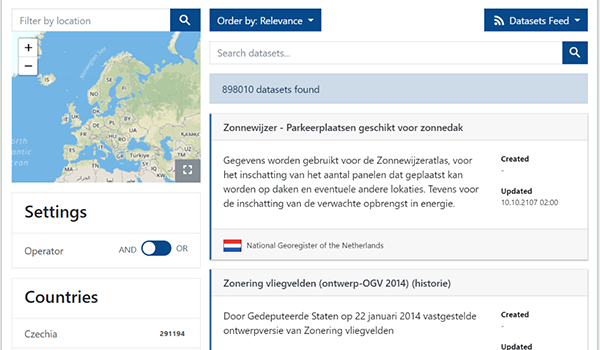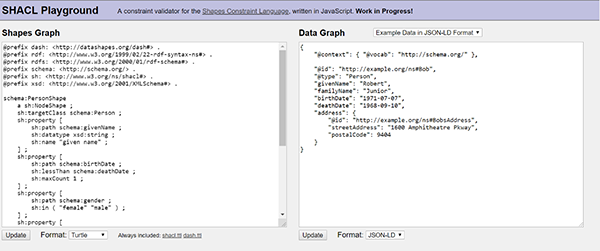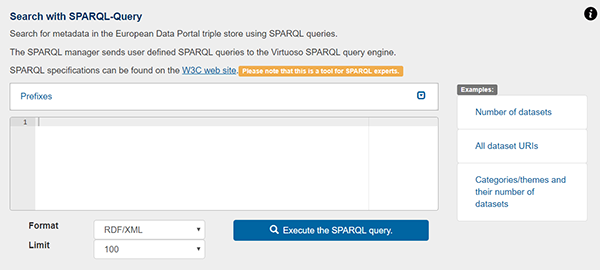European Data Portal releases new version of the website
Fecha:
Ubicación:
Europe
EuroVoc keywords:
Internet site, catalogue, language, publishing
Discover updates to the EDP website
New website
The European Data Portal (EDP) beta version was launched on November 2015. Since then, a new version of the website has been released several times a year with the latest being on 2 May 2019, when the EDP launched version 2.3 of the website.
Previous enhancements and extensions of the EDP website included:
- the development of an API for editorial content (e.g. the EDP use cases, news items and events),
- harvesting of additional catalogues from geo- and non-geo sources,
- a focus on linked metadata (interlinking metadata sets),
- enhancing graphical data visualisations and the geo-spatial visualisation services such as city level base maps that are provided by Eurostat, and
- enhancements of the MQA with the use of W3C Data Quality Vocabulary (DQV), introducing a scoring metric and enhancing catalogue reports.
EDP version 2.3
The EDP version 2.3 includes several new features - features that are visible and hidden from end-users. The new features for version 2.3 include:
- Implementing a fully DCAT-AP native metadata catalogue that makes it easier for users to search for data;
Imagen

- Going beyond the limitations of CKAN - an open source data portal software that acts as a data management system and makes data accessible by providing tools to streamline publishing, sharing, finding, and using data;
- Drastically improving performance on all metadata related components, such as metadata catalogue and Metadata Quality Assurance (MQA) - a monitoring tool for metadata quality;
Imagen

- Ensuring that MQA uses SHACL - a World Wide Web Consortium (W3C) specification for validating graph-based data against a set of conditions - validation for DCAT-AP compliance tests;
Imagen

- Implementing a SPARQL-Manager that supports asynchronous queries and notifies users via mail if a query has been completed;
Imagen

- A complete re-design of the catalogue statistics page; and
Imagen

- Implementing a data storage so that datasets can be discoverable on the EDP, and data can be stored (this will be useful for example for European Union agencies or EU-funded projects that need to start quickly publishing their data and that need more time to setup their own website.
Check out the new features on the EDP website and follow the EDP on Twitter, Facebook or LinkedIn to stay up to date!
